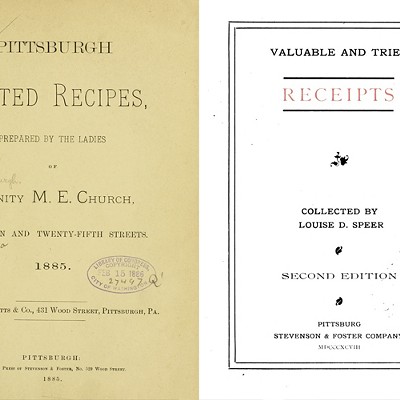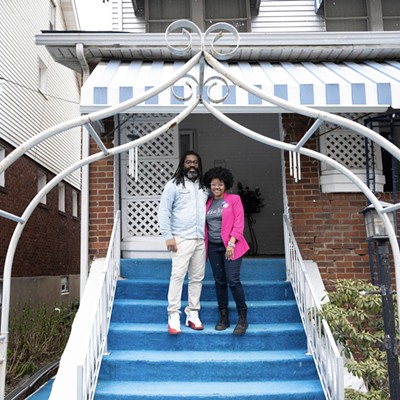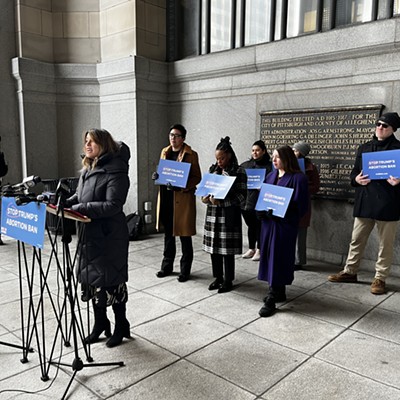Democratic lawmakers are promoting a new state bill that could enable longtime homeowners in certain Pittsburgh neighborhoods to claim property tax freezes.
During a press conference this morning to promote the initiative, State Sen. Jay Costa (D-Forest Hills) along with State Rep. Sara Innamorato (D-Lawrenceville) and Pittsburgh Mayor Ed Gainey, spoke of soaring property values that have spiked property taxes in recent years and driven many longtime homeowners out of East End neighborhoods like Lawrenceville and East Liberty.
“The bottom line is we're trying to take steps to make certain that folks are able to stay in their homes,” Costa said, touting the Longtime Owner Occupant Tax Exemption Program as a solution. “Particularly in the communities and the neighborhoods that they reside in so long.”
Innamorato, a Lawrenceville resident, said median property values in her neighborhood have “increased tenfold” since 2000.
“People who have lived here for a long time deserve to stay in neighborhoods they have invested in,” Innamorato said. “It’s one small step in achieving equity in our government systems.”
The bill, if passed, would simply allow cities like Pittsburgh to enact tax relief programs by amending an existing law. A separate measure would have to clear city council for any tax relief program in Pittsburgh to take effect.
No details have been offered for how that could look, but Gainey suggested the political will is there.
“We need this bill,” he said during the conference. “We don’t want to push out; we have to bring in. And in order to do that we have to be affordable.”
Costa said the definition of a long-term resident had not yet been set but could range anywhere from five to 15 years.
A tax relief program for Allegheny County homeowners took effect for a brief stint in the 1990s but was struck down by the court system. The LOOP Act, its proponents say, would establish a new precedent and clear the way for a successful rollout at the city level.
An effort to pass a similar revision last year failed to clear the state Senate, where Republicans hold a majority.
Costa attributed resistance then to a range of other affordable housing initiatives that collectively claimed a $400 million share of the budget.
One of those initiatives, the Whole-Home Repair bill, was spearheaded by Innamorato, whose party now holds a slim lead in the House.
Costa says he’s confident the LOOP Act will clear the upper chamber this year.
“I know I’ve got support in the senate to advance it too.”



















